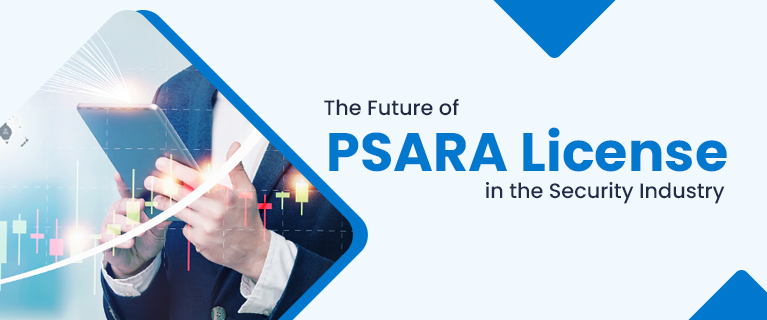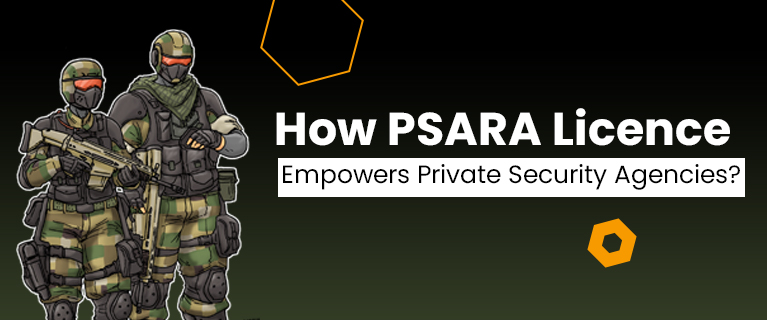Building Customer Trust with PSARA License
Security and safety have been major parts of everyone's concerns in today's society, which is continually evolving. With an increasing number of security threats and risks, there is a growing demand for professional security services that can safeguard people and assets. This is where the Private Security Agencies Regulation Act (PSARA) license plays a crucial role. The PSARA license is a certification that indicates a private security agency's compliance with legal and regulatory requirements, ensuring that it operates in a lawful and reliable manner. In this blog, we will explore how the PSARA license helps build customer trust by providing a sense of security, reliability, and professionalism to clients.
Read also this -: Securing Safety and Trust with PSARA License1. Compliance with Legal Standards
The PSARA license ensures that a security agency complies with all the legal and regulatory standards set forth by the government. Before obtaining the license, the agency undergoes a stringent verification process to ensure its adherence to the required qualifications and qualifications of its security personnel. This compliance instills confidence in customers that they are partnering with a reliable and lawful security provider, enhancing their trust in the agency's services.
2. Trained and Professional Security Personnel
To obtain the PSARA license, a security agency must demonstrate that its personnel are well-trained, skilled, and experienced in handling various security tasks. The license ensures that the security guards and personnel employed by the agency have undergone proper background checks, training, and certification. This professionalism and expertise are essential in building trust with customers who seek reliable security services.
3. Enhanced Safety Measures
Customers look for security agencies that prioritize safety and implement effective security measures. The PSARA license mandates that the agency follows best practices and standard operating procedures to ensure the safety of clients and their assets. This commitment to safety creates a sense of trust among customers that their security needs are being taken seriously and addressed adequately.
4. Transparency and Accountability
The PSARA license requires security agencies to maintain transparency in their operations and financial dealings. This transparency fosters accountability and builds credibility with customers. By knowing that the security agency is accountable for its actions and is operating with transparency, customers are more likely to trust the agency's services.
5. Effective Risk Mitigation
Customers hire security agencies to mitigate potential risks and threats. The PSARA license ensures that the agency has the necessary expertise to identify risks and implement effective risk mitigation strategies. This ability to handle risks proactively instills confidence in customers that their security concerns are in capable hands.
6. Adherence to Code of Ethics
Security agencies with a PSARA license are bound by a code of ethics that outlines their commitment to maintaining confidentiality, respecting privacy, and upholding the rights of their clients. This commitment to ethical conduct builds trust with customers, who value the agency's integrity and dedication to safeguarding their interests.
7. Quality Service Delivery
The PSARA license encourages security agencies to focus on delivering quality services to their customers. By complying with the license requirements, agencies prioritize professionalism, customer satisfaction, and service excellence. This commitment to quality service delivery enhances customer trust and loyalty.
8. Handling Confidential Information
Security agencies often deal with sensitive and confidential information, such as client details, security protocols, and operational plans. The PSARA license ensures that the agency has the necessary measures in place to protect and handle this information with utmost confidentiality and discretion, reinforcing the trust customers place in the agency.
9. Effective Conflict Resolution
Security personnel often find themselves in situations requiring conflict resolution skills. The PSARA license ensures that the agency's personnel are trained in de-escalation techniques, conflict resolution, and handling difficult situations without resorting to violence. This skill set builds trust with customers who know that the security personnel can handle conflicts professionally and responsibly.
10. Round-the-Clock Support
Security threats can arise at any time, and customers expect their security agency to provide 24/7 support and assistance. The PSARA license ensures that the agency is well-equipped to provide round-the-clock support, which is crucial in building trust and confidence among customers.
Read also this -: Benefits of Acquiring a PSARA LicenseConclusion
The PSARA license plays a vital role in building customer trust by ensuring compliance with legal standards, professionalism in service delivery, effective risk mitigation, and adherence to a code of ethics. Customers seek security agencies that prioritize safety, reliability, and accountability, and the PSARA license serves as a testament to these qualities. By obtaining the license and adhering to its requirements, security agencies can enhance their credibility and build long-term relationships with customers based on trust, confidence, and peace of mind.



Great insights on the importance of the PSARA licence in ensuring security, professionalism, and trust! Thanks for sharing this valuable information.
ReplyDelete